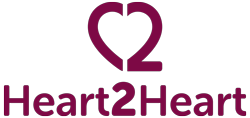'Being at sixes and sevens is good for children's heart care' asserts Children’s Heart Federation
The Children’s Heart Federation (CHF) is today urging politicians and healthcare practitioners to accept that being at sixes and sevens is good for children’s heart care, a reference to the need to reduce the number of active surgical units from ten to six or seven, in order to achieve the best possible health outcomes for babies and children having heart surgery.
Clinicians in the field of children’s heart care endorse the comprehensive set of standards of care, developed last year through the NHS Children’s Congenital Cardiac Services Safe and Sustainable programme, as the way of achieving the best surgical outcomes for children (fewest deaths and least harm). The logic of the standards leads inevitably to the consolidation of surgery into centres performing at least four hundred operations a year, with teams of four or five surgeons working together. Now, on the eve of the consultation period, in which the public will be offered several options of different groupings of six or seven centres to replace the current surgical network, CHF is highlighting the benefits of pushing ahead with the change.
“The prize is a children’s heart care system in which the quality of surgery is higher, fewer operations are cancelled and there is better ongoing cardiology care at regional and local level,” asserts Children’s Heart Federation Chief Executive, Anne Keatley-Clarke. “But I am shocked to hear from CHF member groups across the country about the extent to which some nurses and doctors have been winding up parents to fight against the changes by telling them this reorganisation will blight their local service. In fact, for most families, the changes will make things better.”
Ms Keatley-Clarke continues, “This is a stressful time for parents who want reassurance that there is a very clear pathway of care for their child. It’s particularly hard for parents whose children will need surgery at a centre further away than they expected provided by an unfamiliar team. Their concerns about support at a more distant centre, the safe transport of their sick child, and how they will cope with the caring and financial pressures are very significant. Yet these important issues must not derail a change process that will keep more babies alive, in a better state of health, than if we ‘wimp out’ and do nothing.”
She concludes, “We know this is an uncertain time for clinicians too, but rather than blocking the change, especially through manipulating parents, we’re asking them to keep their eye on the goal of a safe and robust service. You could say, over reducing the number of units, where people feel at sixes and sevens, that’s just what the service needs!”
– Ends –
Notes for editors:
- The Children’s Heart Federation (CHF) is the leading UK charity working for families of children with heart conditions. CHF is an umbrella body with 21 member organisations that support children and young people with heart defects from birth or acquired in childhood and their families in the UK and Ireland. CHF provides information and support through its freephone helpline 0808 808 5000, open Monday to Friday and its website www.chfed.org.uk
- Approximately 5000 babies in the UK are born with a heart condition each year, with a further 1000 developing a serious heart problem after birth. Around 3600 operations are performed by 31 paediatric cardiac surgeons within 10 centres in England each year.
- The NHS is currently reviewing services related to children’s heart surgery across England. For more information about this reconfiguration programme, known as Safe and Sustainable Children’s Congenital Cardiac Services seehttp://www.specialisedservices.nhs.uk/safe_sustainable/childrens-congenital-cardiac-services









